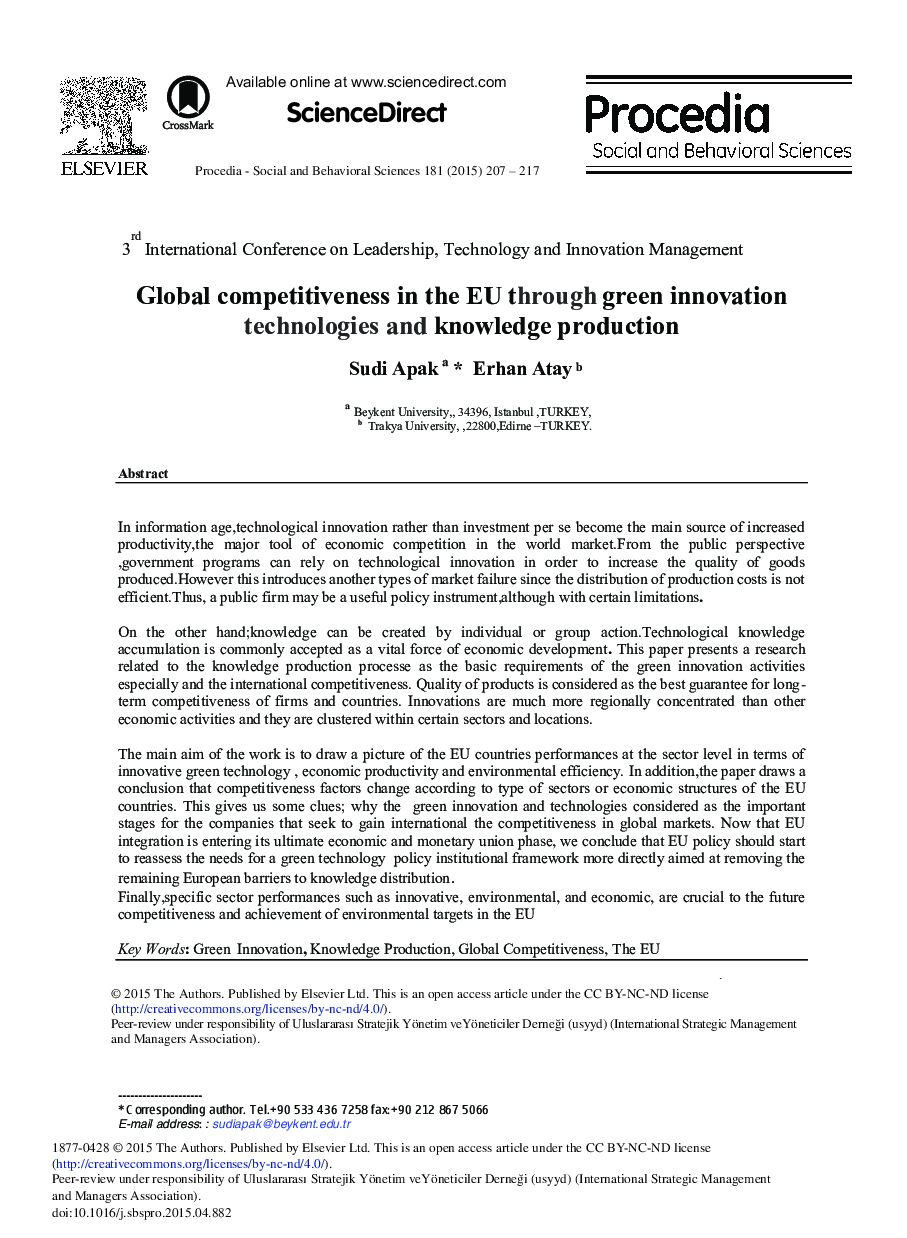| Article ID | Journal | Published Year | Pages | File Type |
|---|---|---|---|---|
| 1111319 | Procedia - Social and Behavioral Sciences | 2015 | 11 Pages |
In information age,technological innovation rather than investment per se become the main source of increased productivity,the major tool of economic competition in the world market.From the public perspective,government programs can rely on technological innovation in order to increase the quality of goods produced.However this introduces another types of market failure since the distribution of production costs is not efficient.Thus, a public firm may be a useful policy instrument,although with certain limitations.On the other hand;knowledge can be created by individual or group action.Technological knowledge accumulation is commonly accepted as a vital force of economic development. This paper presents a research related to the knowledge production processe as the basic requirements of the green innovation activities especially and the international competitiveness. Quality of products is considered as the best guarantee for long-term competitiveness of firms and countries. Innovations are much more regionally concentrated than other economic activities and they are clustered within certain sectors and locations.The main aim of the work is to draw a picture of the EU countries performances at the sector level in terms of innovative green technology, economic productivity and environmental efficiency. In addition,the paper draws a conclusion that competitiveness factors change according to type of sectors or economic structures of the EU countries. This gives us some clues; why the green innovation and technologies considered as the important stages for the companies that seek to gain international the competitiveness in global markets. Now that EU integration is entering its ultimate economic and monetary union phase, we conclude that EU policy should start to reassess the needs for a green technology policy institutional framework more directly aimed at removing the remaining European barriers to knowledge distribution.Finally,specific sector performances such as innovative, environmental, and economic, are crucial to the future competitiveness and achievement of environmental targets in the EU
